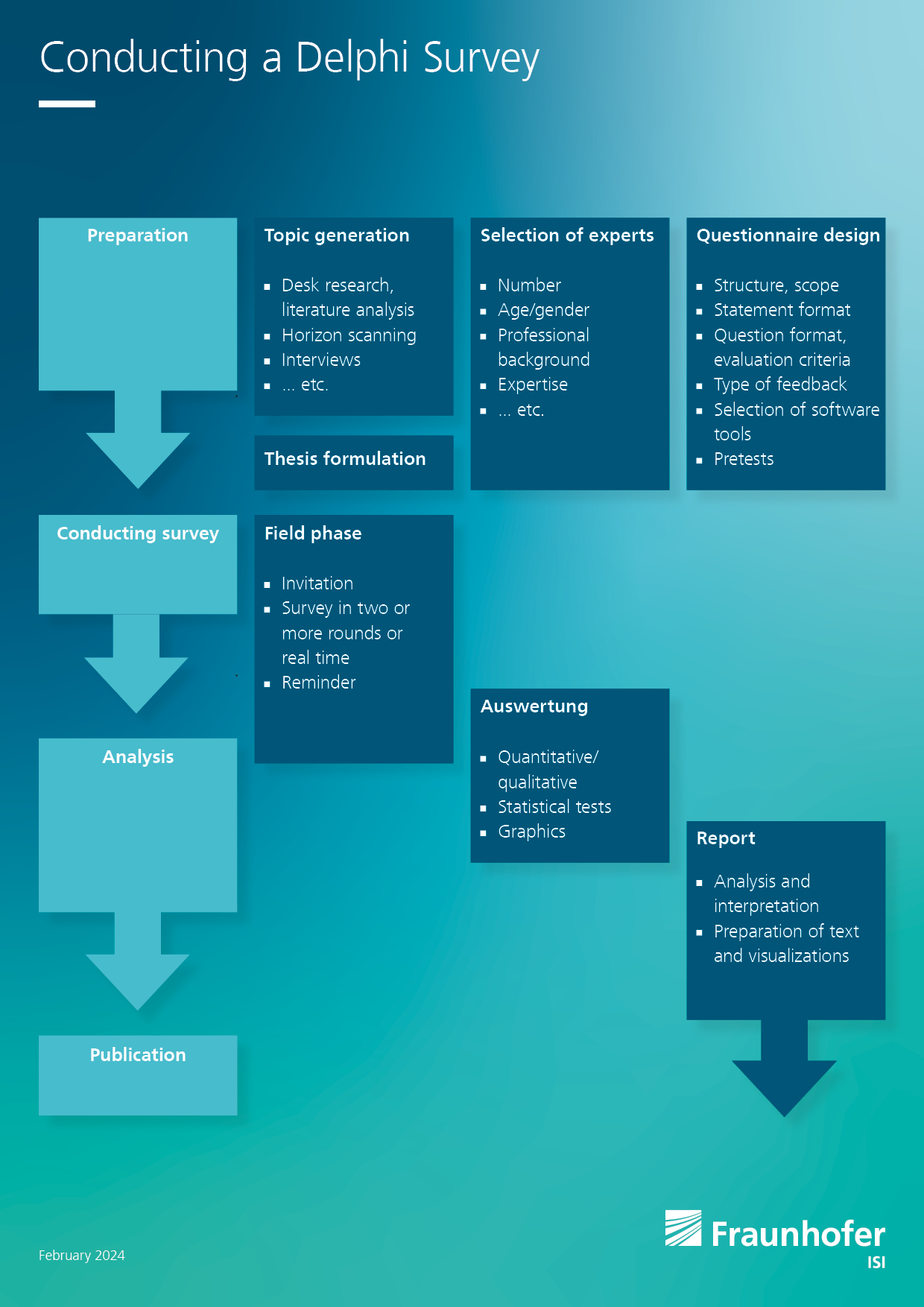Futures Surveys can encompass various objectives and designs, ranging from capturing expectations about the future to assessing time horizons and evaluating developments. These inquiries may include open-ended questions as well as statistically analyzable assessments of future topics.
In Delphi Surveys, propositions are formulated containing statements on a future theme or aspect, and participants are invited to evaluate them. The specific feature of Delphi Surveys is the provision of feedback (intermediate results of the survey), enabling participants to respond to the same content again, influenced by the responses of other participants. Delphi Surveys are designed for experts, where the concept of expertise can be broadly defined, often involving an assessment of the degree of subject knowledge.
In the Realtime-Delphi method, participants receive immediate feedback once a sufficient number of responses is collected. Additionally, there is often an opportunity to supplement or evaluate justifications (Dynamic-Argumentative Delphi).
A Delphi Survey serves to refine and assess future themes, as well as to compile, recognize, focus, and concretely formulate new ones. The core elements of a Delphi Survey consist of propositions established based on desk research, interviews, or workshop outcomes.
